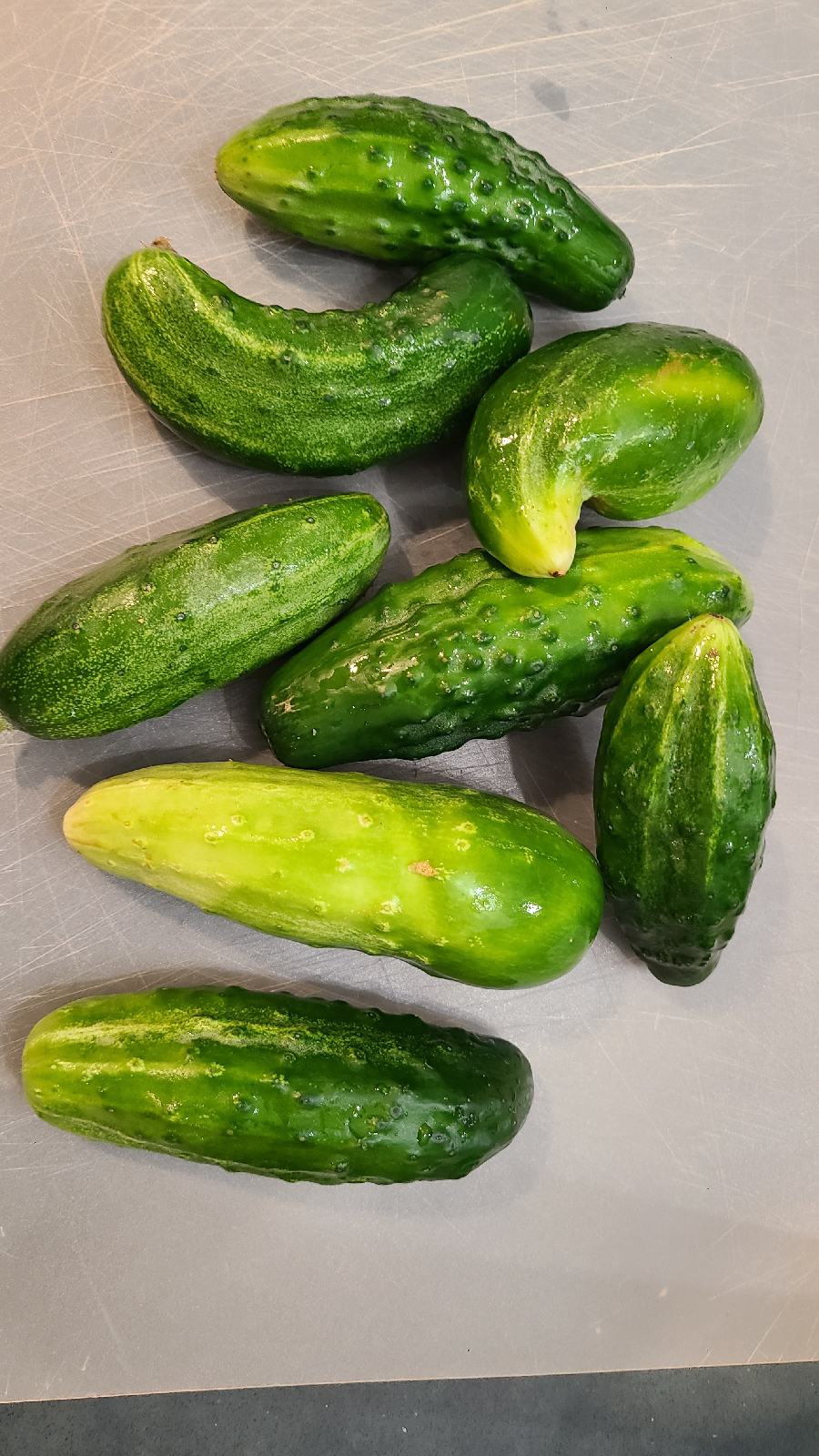Pickle Making Experiments
So, despite my best effort to convince Brooke to let me thin the cucumbers to a more manageable number for our small garden, we are quickly becoming overrun with cucumbers. Luckily, I convinced her to plant small, pickling cucumbers, so it is no big deal.
For those looking for some abomination of a sweet "pickle" recipe, keep moving. Sweet pickles do not touch my lips, and I consider it false advertising when restaurants don't distinguish that the pickles they serve are in fact horrible sweet monstrosities.
So anyway, I've been wanting to try making my own pickles for a while. The real thing, dill pickles. So after quick bit of research, it is easy to find out that there are a couple main ways to make pickles. The first way utilizes vinegar solution, and is similar to the pickles packed on most grocery store shelves. The other way involves a simple brine solution and a little patience. These are fermented pickles.
I want to try fermenting pickles. There are tons of recipes out there with differing brine solutions. Since this is my first attempt, I picked one that was on the higher end, but not super high in salt. It is a 5.8% solution. Everything else you put in the brine should be according to your taste. I chose to go simple. A couple cloves of whole garlic, a handful of fresh dill, and a few whole black peppercorns.
A great tip from a friend (thanks Dave) helped me to overcome a concern with making my own pickles without using some chemical preservative, while keeping them crunchy. Oak leaves! Or Grape leaves! These leaves have high tannic acid levels (tannic acid is what causes 'blackwater' streams in certain forests) which help keep the pickles from getting soft.
Well, after a little over 2 weeks, I tried a pickle. It was good. Salty and dilly and delicious. It was smaller, so I left the pickles continue for another day figuring it would take a little longer for the bigger ones. The next day, I grabbed a larger pickle to eat with a BLT for dinner. It looked good enough. I bit in and it had a great crunch and initially tasted good.
But after another bite, I noticed there was a bit of an unpleasant earthy or woody taste. After some research and consulting Dave again, I concluded that it was excess yeast causing problems with taste. Currently I have the pickles in fresh brine in the fridge, hoping that they aren't a lost cause and that the fresh brine will alleviate some of the unwelcome yeast taste. If not, I have two new batches started that I plan to be more vigilant with and won't let them ferment quite as long this time.
 |
| The cucumber vines on the left, have nearly shaded out our peppers. |
For those looking for some abomination of a sweet "pickle" recipe, keep moving. Sweet pickles do not touch my lips, and I consider it false advertising when restaurants don't distinguish that the pickles they serve are in fact horrible sweet monstrosities.
So anyway, I've been wanting to try making my own pickles for a while. The real thing, dill pickles. So after quick bit of research, it is easy to find out that there are a couple main ways to make pickles. The first way utilizes vinegar solution, and is similar to the pickles packed on most grocery store shelves. The other way involves a simple brine solution and a little patience. These are fermented pickles.
I want to try fermenting pickles. There are tons of recipes out there with differing brine solutions. Since this is my first attempt, I picked one that was on the higher end, but not super high in salt. It is a 5.8% solution. Everything else you put in the brine should be according to your taste. I chose to go simple. A couple cloves of whole garlic, a handful of fresh dill, and a few whole black peppercorns.
A great tip from a friend (thanks Dave) helped me to overcome a concern with making my own pickles without using some chemical preservative, while keeping them crunchy. Oak leaves! Or Grape leaves! These leaves have high tannic acid levels (tannic acid is what causes 'blackwater' streams in certain forests) which help keep the pickles from getting soft.
Well, after a little over 2 weeks, I tried a pickle. It was good. Salty and dilly and delicious. It was smaller, so I left the pickles continue for another day figuring it would take a little longer for the bigger ones. The next day, I grabbed a larger pickle to eat with a BLT for dinner. It looked good enough. I bit in and it had a great crunch and initially tasted good.
 |
| This full-sour dill pickle looks good, but had a bit of a strong yeast taste |



Comments
Post a Comment